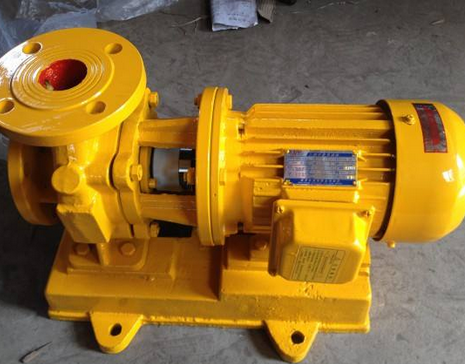Introduction to the material types of chemical pumps
Chemical pumps are made of a variety of materials, and the selection of these materials is usually based on factors such as the properties of the medium, process requirements, and environmental conditions. The following is an introduction to some common types of chemical pump materials:
1. Metal materials
Stainless steel
Features: Stainless steel is one of the most commonly used metal materials in chemical pumps, with excellent corrosion resistance, high temperature resistance, and heavy pressure resistance.
Application: Widely used in petroleum, chemical, metallurgy, synthetic fiber, pharmaceutical, food and other industries, for conveying alkaline corrosive media, etc.
Common types: Stainless steel materials such as 304 and 316, among which 316 stainless steel has stronger resistance to corrosive media such as chloride ions due to the molybdenum element.
Cast iron
Features: Cast iron material is low in cost and has certain corrosion resistance and wear resistance.
Application: Mainly used in industrial, urban water supply, drainage and other fields, as well as irrigation and drainage systems of farmland and orchards, for conveying clean water or other liquids with physical and chemical properties similar to clean water.
Type: Gray cast iron and ductile iron are two commonly used cast iron materials, among which ductile iron has better comprehensive performance and is often used as a substitute for cast steel.
Cast steel
Features: Cast steel has high strength and strong pressure bearing capacity, and is suitable for high-pressure environments.
Application: When the pressure is greater than 1.6MPa, pressure-bearing parts are mostly made of cast steel.
Alloy steel
Features: Alloy steel has higher strength and corrosion resistance and is suitable for special working conditions.
Application: For example, 40Cr alloy steel is often used as a material for high-strength pump shafts.
2. Non-metallic materials
Fluoroplastic
Features: Fluoroplastic is a polymer material with acid and alkali resistance, corrosion resistance, and high temperature resistance.
Application: Fluoroplastic pumps are widely used to transport highly corrosive media such as concentrated sulfuric acid and hydrochloric acid. Common fluoroplastics include polytetrafluoroethylene (PTFE) and fluorinated polyurethane (FPU).
Ceramics
Features: Ceramic materials have excellent properties such as corrosion resistance, wear resistance, and high temperature resistance.
Application: Ceramic pumps are suitable for transporting corrosive media such as organic acids, strong alkalis, and chloride ions. Commonly used ceramic materials include alumina and silicon nitride.
Rubber
Features: Rubber materials have good elasticity and sealing properties.
Application: Mainly used for seals of chemical pumps, such as oil seals, gaskets, etc. Common rubber materials include nitrile rubber, fluororubber, etc.
Glass fiber reinforced plastic
Features: Glass fiber reinforced plastic (FRP) is a composite material composed of resin and glass fiber, which has the characteristics of corrosion resistance, light weight and high strength.
Application: Glass fiber reinforced plastic pumps are suitable for conveying highly corrosive media. At the same time, its light weight and high strength make equipment transportation and installation more convenient.
3. Composite materials
In addition to the above-mentioned single-material chemical pumps, there are also chemical pumps made of composite materials. Composite materials combine the advantages of multiple materials and have higher performance and a wider range of applications. For example, some chemical pumps are made of composite materials of metal and fluoroplastics, which have both the strength and rigidity of metal and the corrosion resistance of fluoroplastics.





